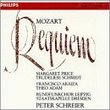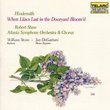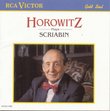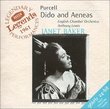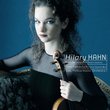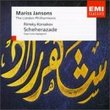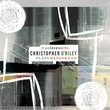| All Artists: Wolfgang Amadeus Mozart, Orpheus Chamber Orchestra, Richard Goode Title: Mozart: Piano Concertos Nos. 18 & 20 Members Wishing: 2 Total Copies: 0 Label: Nonesuch Release Date: 10/15/1996 Genre: Classical Styles: Forms & Genres, Concertos, Historical Periods, Classical (c.1770-1830), Instruments, Keyboard Number of Discs: 1 SwapaCD Credits: 1 UPC: 075597943924 |
Search - Wolfgang Amadeus Mozart, Orpheus Chamber Orchestra, Richard Goode :: Mozart: Piano Concertos Nos. 18 & 20
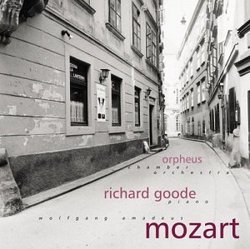 | Wolfgang Amadeus Mozart, Orpheus Chamber Orchestra, Richard Goode Mozart: Piano Concertos Nos. 18 & 20 Genre: Classical
|
Larger Image |
CD DetailsSimilarly Requested CDs |
CD ReviewsGreat modern interpretation erang | Ramat Gan Israel | 09/23/2001 (5 out of 5 stars) "a wonderful performance. goode is excellent, especially on no. 20. the playing is strong, perhaps too strong for those who like the romantic approach." What was Wolfgang doing at Indianapolis? Paul S. | Oakland, California | 10/07/2006 (4 out of 5 stars) "Answer: about 200 mph, in the third movement of the D minor. At 6:52, Goode may have set a record for this track: he shaves almost a minute off Curzon's time, and beats even Bilson by over half a minute. The slow movement likewise is the fastest I know of, which costs it some of its depth, and sounds almost as staccato as if it were played on a pianoforte.
But if your fondness for lively Mozart extends to allowing an allegro assai to be played quasi prestissimo, you're going to love this disc. The D minor is energized not only by fast tempi but by pointed accents and impassioned playing. The unusually detailed CD notes explain that the D minor was composed around the time Mozart wrote Don Giovanni; evidently an opera buffa style was emulated here. Despite the fast pace, the players stay on top of the music, with a great deal of nuance and only a few, very slight lapses of precision (it is the clarity of this recording that tattles on them). Goode uses Beethoven's cadenza in the first movement; in the finale, he offers a terse, refreshing and brilliant cadenza of his own (none of the wallowing in the spotlight that characterizes too many self-composed cadenzas). The Concerto #18 receives a less notable performance, straightforward and polished. " |

 Track Listings (6) - Disc #1
Track Listings (6) - Disc #1